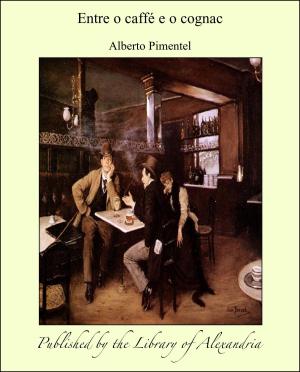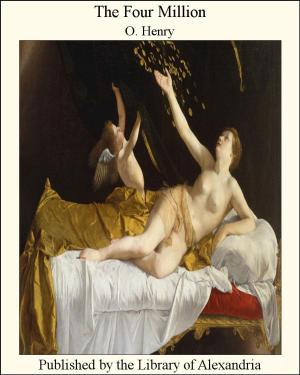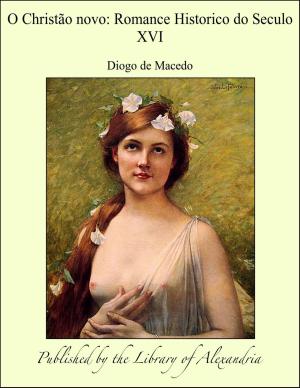Nooks and Corners of Old Paris
Nonfiction, Religion & Spirituality, New Age, History, Fiction & Literature| Author: | Georges Cain | ISBN: | 9781465543639 |
| Publisher: | Library of Alexandria | Publication: | March 8, 2015 |
| Imprint: | Language: | English |
| Author: | Georges Cain |
| ISBN: | 9781465543639 |
| Publisher: | Library of Alexandria |
| Publication: | March 8, 2015 |
| Imprint: | |
| Language: | English |
THE PLACE DE LA BASTILLE, AND THE ELEPHANT Lithographed by Ph. Benoist Most of its streets were very narrow and had no sidewalks. Pedestrians were obliged to take refuge, from passing carriages, on shop thresholds, under entrance gates, or else beside posts erected here and there for that purpose. Still, even in the densest traffic, one ran fewer risks walking along the road than one runs at present crossing the boulevards.... On these boulevards, where a single omnibus plied between the Madeleine and the Bastille every quarter of an hour, and where there was practically no danger of being knocked down by a horse, I have seen a crowd watching a fencing-bout on the spot to-day occupied by a refuge-pavement; and, on the Bastille Square, I used to play quietly, trundling my hoop round the Elephant and the July Pillar. There was little else to dread, throughout Paris, save splashes from the gutters, whose waters flowed in the middle of the streets ... when they flowed at all; for, during the hot summer days, there was nothing but stagnant household slops, which lay in the gutters until the next storm of rain. In winter, as the snow was never swept away, and the employment of salt for melting it was unknown, the thaws were something terrible! Every corner—and the houses being hardly ever in line, there were many—was used as a rubbish-heap, or for the committing of nuisances excusable only through lack of modern conveniences. Moreover, the streets, by very reason of their narrowness, were more noisy than ours. The rolling of heavy waggons over big, round paving-stones badly set, with jolts that shook both windows and houses; the constant cries of men and women selling fruit, vegetables, fish and flowers, &c. ... and pushing their handcarts, not to speak of dealers in clothes, umbrellas, and hand-brushes, of glaziers and of chimney-sweeps; the din of watermen blowing into their taps; the calls of water-bearers as they loudly clinked their bucket-handles; the clarionets and tambourines of strolling singers that went from one courtyard to another; all this composed the gaiety of the street. What was less tolerable was the incessant noise of barrel-organs beneath your windows from morning till evenings and inflicting on you a torture that it makes me angry to think of even now. To crown all, the lighting of the streets was wretched. In most, it was the ancient lamp whose illumination was an affair that stopped traffic while the operation lasted. On the other hand, however, the city was better guarded at night than it is at present, owing to the rounds of the "grey patrols" which, with their Indian files of cloak-muffled, slow-walking figures, crept along the walls and crossed one another's beats so as to be within helping distance, at the least alarm. Happy time, when, at one o'clock in the morning, in my lonely quarter, I was sure to come across one of them, and when one could stay out late without a revolver in one's pocket. This, it will be said, was because Paris was smaller, less populus, and the task of the police easier. But it is the duty of the police to proportion the protection to the danger, and the numbers of its officers to those of the evil-doers that infest our streets, for whom, formerly, little of the regard was felt that is lavished on them to-day. As a set-off to its narrow, badly-paved, badly-kept, and badly-lighted streets, Paris then had an attraction which it no longer possesses—its gardens
THE PLACE DE LA BASTILLE, AND THE ELEPHANT Lithographed by Ph. Benoist Most of its streets were very narrow and had no sidewalks. Pedestrians were obliged to take refuge, from passing carriages, on shop thresholds, under entrance gates, or else beside posts erected here and there for that purpose. Still, even in the densest traffic, one ran fewer risks walking along the road than one runs at present crossing the boulevards.... On these boulevards, where a single omnibus plied between the Madeleine and the Bastille every quarter of an hour, and where there was practically no danger of being knocked down by a horse, I have seen a crowd watching a fencing-bout on the spot to-day occupied by a refuge-pavement; and, on the Bastille Square, I used to play quietly, trundling my hoop round the Elephant and the July Pillar. There was little else to dread, throughout Paris, save splashes from the gutters, whose waters flowed in the middle of the streets ... when they flowed at all; for, during the hot summer days, there was nothing but stagnant household slops, which lay in the gutters until the next storm of rain. In winter, as the snow was never swept away, and the employment of salt for melting it was unknown, the thaws were something terrible! Every corner—and the houses being hardly ever in line, there were many—was used as a rubbish-heap, or for the committing of nuisances excusable only through lack of modern conveniences. Moreover, the streets, by very reason of their narrowness, were more noisy than ours. The rolling of heavy waggons over big, round paving-stones badly set, with jolts that shook both windows and houses; the constant cries of men and women selling fruit, vegetables, fish and flowers, &c. ... and pushing their handcarts, not to speak of dealers in clothes, umbrellas, and hand-brushes, of glaziers and of chimney-sweeps; the din of watermen blowing into their taps; the calls of water-bearers as they loudly clinked their bucket-handles; the clarionets and tambourines of strolling singers that went from one courtyard to another; all this composed the gaiety of the street. What was less tolerable was the incessant noise of barrel-organs beneath your windows from morning till evenings and inflicting on you a torture that it makes me angry to think of even now. To crown all, the lighting of the streets was wretched. In most, it was the ancient lamp whose illumination was an affair that stopped traffic while the operation lasted. On the other hand, however, the city was better guarded at night than it is at present, owing to the rounds of the "grey patrols" which, with their Indian files of cloak-muffled, slow-walking figures, crept along the walls and crossed one another's beats so as to be within helping distance, at the least alarm. Happy time, when, at one o'clock in the morning, in my lonely quarter, I was sure to come across one of them, and when one could stay out late without a revolver in one's pocket. This, it will be said, was because Paris was smaller, less populus, and the task of the police easier. But it is the duty of the police to proportion the protection to the danger, and the numbers of its officers to those of the evil-doers that infest our streets, for whom, formerly, little of the regard was felt that is lavished on them to-day. As a set-off to its narrow, badly-paved, badly-kept, and badly-lighted streets, Paris then had an attraction which it no longer possesses—its gardens















